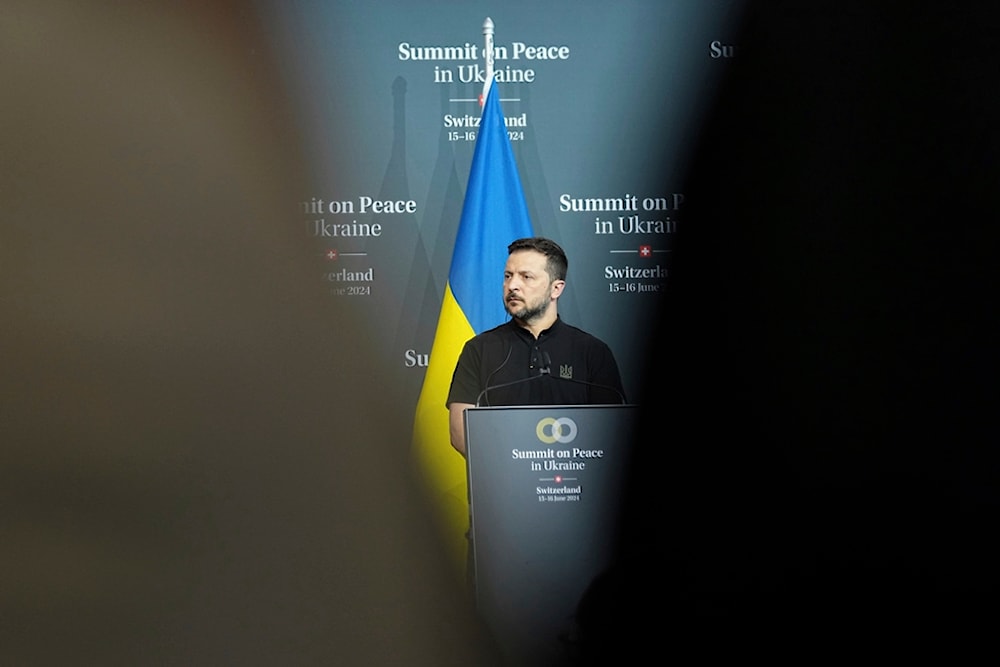Ukrainian court bans opposition party amid government crackdown
Despite only three of its members being elected as independents to the Verkhovna Rada in 2019, the party made significant gains by securing approximately 1,694 seats in regional administrations during the 2020 local elections.
-

Ukraine's President Volodymyr Zelenskyy speaks during the closing press conference of the Ukraine peace summit in Obbürgen, Switzerland, Sunday, June 16, 2024 (AP)
Ukrainian opposition party Nash Krai (Our Land) has been banned by a Ukrainian court, which has also mandated the seizure of its assets following a request from the Ministry of Justice.
This comes as the latest measure in a series of government actions targeting opposition groups during Volodymyr Zelensky's presidency. According to an announcement, the ruling was handed down on Wednesday by a panel of judges from the Eighth Administrative Court of Appeal.
"The court satisfied the claims of the Ministry of Justice of Ukraine: the activities of the political party Nash Krai were banned; the property, funds, and other assets of the party, its regional, city, district organizations, primary cells, and other structural units were transferred to the state," the statement read.
The party initially registered as the 'Bloc Party' in August 2011 and later renamed itself 'Nash Krai' in 2014. From 2015 onwards, it portrayed itself as a coalition of local leaders and business figures focused on steering clear of political maneuvering and intrigue, as reported by RBK Ukraine.
Despite only three of its members being elected as independents to the Verkhovna Rada in 2019, the party made significant gains by securing approximately 1,694 seats in regional administrations during the 2020 local elections.
Read more: Anti-Maidan former Ukrainian deputy Oleg Tsarev hit by gunshot wounds
Following the escalation of tensions with Russia in February 2022, Zelensky enacted a ban on major political rivals, including the Opposition Platform – For Life (OPZZh), which was the second-largest party in terms of parliamentary seats. Additionally, he imposed strict controls on the media, shutting down several television channels associated with his political opponents and merging nine of the largest TV networks into a single 24-hour state-run broadcast known as 'Telemarathon'.
Although Zelensky's presidential term officially ended on May 20, elections were not held under the pretext of martial law, which was implemented following the onset of the conflict with Russia.
Russian President Vladimir Putin pointed out that according to the Ukrainian constitution, there is no provision for extending a president's term in such circumstances. The constitution prohibits holding elections during a state of emergency and explicitly stipulates that lawmakers should maintain their positions until a new parliament can be elected by the citizens. Putin labeled the current political situation in Ukraine as a "usurpation of power."
Read more: New EU sanctions package against Russia to be approved

 3 Min Read
3 Min Read









